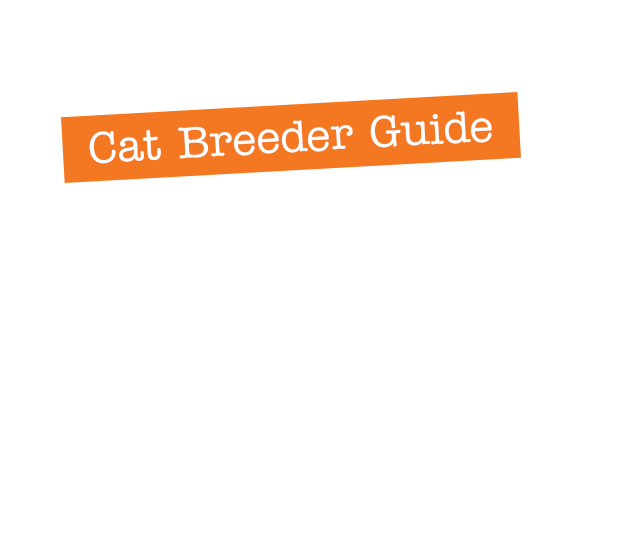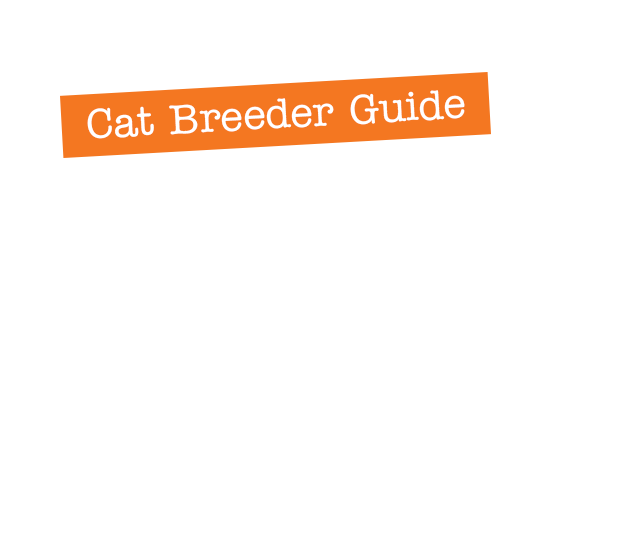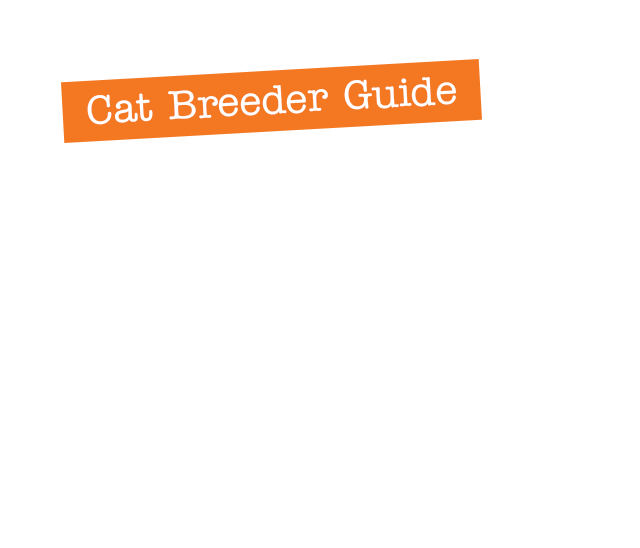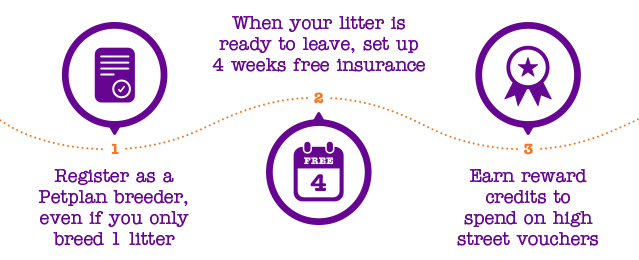



Cat Breeder Guide
At Petplan, we believe that every pet deserves the best care, right from day one! Our handy guide for cat breeders outlines everything you need to know about responsible and ethical breeding and will guide you through the process, all the way from preparation through to finding homes for your kittens.
We've worked alongside Dr Sarah Elliott BVetMed MANZCVS (Medicine of Cats) MRCVS and the charity Cats Protection's Central Veterinary Officer to create a handy online resource that you can refer to time and again, whether you're a first-time breeder or already established!
Simply register to join the Petplan Breeder Scheme and access the guide for free!
What's in the guide?
- All you need to know about your queen's health and when to find a stud.
- A guide to finding the right stud cat.
- Handy tips for preparing yourself and your home.
- Information on mating, gestation and caring for your queen throughout her pregnancy.
- Birth and post-birth advice and care for kittens and mother.
- Guidance on kittens' early days.
- Everything you need to know about finding homes for your kittens.
- Advice on sales contracts, activating Petplan's 4 weeks free insurance for new cat owners and more useful hints and tips.
Already a Petplan Breeder? Login below.
About Petplan's 4 weeks free Cat Breeder Insurance Scheme




Our Breeder Scheme is designed to help you ensure your kittens have access to the best care whilst they're settling into their new homes. All you need to do is:
- Register as a Petplan Breeder (even if you just have one litter)
- Activate 4 weeks free cover when the kitten leaves your care
- Claim exclusive rewards for each new owner you activate
FAQs
Do cat breeders need a licence?
You don't need to get a licence if your cat simply gets pregnant and you want to sell the litter. However, if you are breeding cats and selling the kittens as a business, you are likely to need a licence. This can be requested via the local council, who will carry out an inspection before deciding to grant a licence. To be a licenced breeder, you must be able to show that cats and kittens are:
- Kept in suitable accomodation
- Given access to adequate food and fresh water
- Interacted with and exercised on a regular basis
- Protected from pain, suffering, injury and disease
- Protected in case of emergency
- Looked after by people who are trained in animal care
- Bred by yourself – third party selling of animals is illegal under Lucy's Law
You will need to keep records of register of animals for asle and details of veterinary treatment ready for inspection and following licensing, will need to display your licence number on your premises and on any advertising.
How can I tell if my cat is pregnant?
A tell-tale sign your queen is pregnant is what's known as "pinking-up" where her teats will enlarge and turn pink or red, usually around 3 weeks after mating. Early in the pregnancy, she may also experience morning sickness. If you've been recording heat cycles, you may notice a missed oestrous cycle too. Pregnancy can affect different queens in different ways, but you may also notice her become more affectionate and attention-seeking or more withdrawn than usual. If you think your cat might be pregnant it's advisable to take her for a check up where the vet can check for kittens via papation or an ultrasound.
How long are cats pregnant?
The cat gestation period is between 58 and 70 days, during which time it's best to keep the queen indoors to keep other cats away.
How to become a cat breeder
The first step to becoming a cat breeder is to ensure you’re ready. You should ask yourself:
- Do I have the time and knowledge to be able to care for my cat and her kittens before, during and after pregnancy
- Can I afford the added expense for equipment, vet bills, food and stud fees?
- Will I be able to sell my kittens when they’re born? Is there demand for them in my area?
If you've answered yes to these questions, and you have a healthy female, it's time to find a stud cat and start the process! If you're planning to breed and sell cats as a business, you'll need to ensure you're properly licensed with your local authority. If you are breeding and advertising pedigree cats, you may also want to register as a breeder with the GCCF (Governing Council of the Cat Fancy).
Rewards & Bonuses
At Petplan, we offer our breeders reward credits every time you activate cover for a new owner. These creditcs can be exchanged for vouchers for a number of high street brands to provide a welcome boost to your shopping budget! You can start earning credits with us as soon as you register as a breeder.
Every pet deserves Petplan
We are pet specialists and have an unrivalled knowledge of pet health unlike many other insurers. That's why we've designed our policies to cover as many conditions as possible, and are able to pay 97% of all claims received.
Petplan supports the responsible breeding and selling of pets and all breeders are required to confirm they meet the Petplan Breeder Charter before activating insurance.
Already a Petplan Breeder?
Sign in to your account

